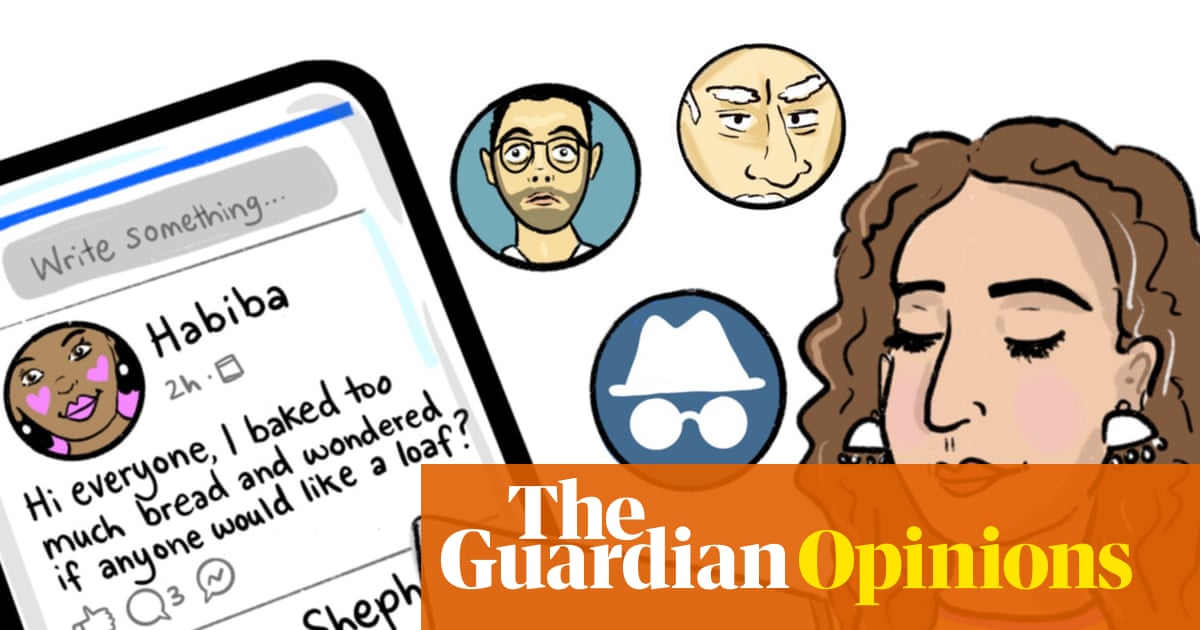I never lie. Except when declining an invitation – then I always lie.
Once, my fiance, Jared, and I were invited to a dinner we didn’t want to attend. We were worn out from traveling, and some of the other guests required a lot of energy to be around. I replied in the group text that we already had plans – but we were “so sorry to miss!” Jared, sitting next to me on the couch, gawped.
“That’s a lie!” he said. Then, amazed and a little horrified: “You lied so fast.”
Of course I lied! Wasn’t it more polite to make up a fake excuse than say you simply don’t feel like it?
I started to wonder if that was true. Jared is always honest. Open and honest communication with those I love is important to me. Also, I got caught in my lies a couple of times, which was awkward and humiliating.
I decided to try not lying for two weeks. A fortnight felt manageable – there were only so many people I could alienate in that time. I also turned to professionals to find out whether honesty is always the best policy.
Why do people lie?
People do lie for malicious reasons – “to get one over on people, and achieve all the ill-gotten gains that come from deceitfulness”, says Matt Lundquist, psychotherapist and clinical director and founder of Tribeca Therapy in New York.
But a 2022 study published in the Canadian Journal of Behavioral Science found that some of the most common reasons for lying were “altruistic reasons, secretive reasons, and to avoid negative evaluation”. Simply put, we want other people to like us and we don’t want to make them feel bad.
Sometimes, lying just feels easier. “Probably the most common reason people lie day to day is that it makes things simpler and more straightforward,” says Lundquist. The truth can be complicated and confusing, and a lie can be a convenient shortcut, he says.
For instance, when I fibbed about dinner, I didn’t think everyone on the group text needed to know why we were declining – just that we weren’t going.
“It’s quite common for people to tell a little white lie when they’re declining invitations,” says Elaine Swann, etiquette expert and author of Elaine Swann’s Book of Modern Etiquette. Swann says people do this to avoid offense and “soften the blow”.
Exactly! I think. Isn’t it actually nice of me to lie? “Certainly, the sentiment that exists is admirable,” she goes on. But the lie itself is an issue. “It’s important for us to realize that we just should not lie, especially to our friends.” Oops.
One’s proclivity to lie can also depend on “developmental” experiences, says Lundquist. When we were younger, how the adults around us were able to tolerate disappointment and frustration shaped how comfortable we became with telling the truth. If we learned that delivering inconvenient information feels unsafe, lying might seem easier.

What are the costs and benefits of lying?
One reason I want to stop lying is that it feels bad. When I lie, I feel like a slug: spineless and slimy. Not only am I failing to act in accordance with my values, it seems kind of pathetic. I can’t be honest about why I’m skipping a coffee? Really?
“If telling even small lies causes you anxiety and stress, then this will have all the negative effects on your body that stress does,” explains Dr Sharon Leal, a senior research fellow at the University of Portsmouth who studies the behavioral and physiological effects of deception. These might include increased heart rate, palpitations, dry mouth, altered respiration and lowered immune system efficiency, she says.
after newsletter promotion
But sometimes a lie might feel better than telling the truth. Say your friend invites you to a party, but you hate their partner. “In these circumstances, telling the truth could be far more stressful than lying and saying you have prior arrangements that night,” she says. These types of lies are known as “social lubricant” lies, she explains, because they help social interactions run more smoothly.
Lies can have positive effects, Lundquist concedes – “which is not to say that I’m advising them or counseling them”, he adds – like making people feel less disappointed and sparing yourself an uncomfortable conversation. But there are costs, he says.
“Lying can become a habit and a default way of operating in the world,” he says. That has consequences for relationships, he argues. Regular deception erodes others’ trust in us, as well as our trust in ourselves.
Plus, in telling a lie, we miss the chance to connect with someone. “There’s a missed opportunity to build the kind of closeness that comes in being more direct,” he says. If you tell a friend you’re too burnt out to socialize, this can open the door for them to share how they’re doing.
I think about the time Jared’s friend cancelled lunch plans because they were feeling exhausted and sad. “You can just be honest about that … ?” I thought in awe. They exchanged texts about it and agreed to check back in when they were feeling better. “I’m happy they felt like they could share that with me,” Jared said. I wondered what I was missing out on when I lied and told friends that I had food poisoning instead of admitting that I was feeling down.
When you lie, you also miss the opportunity to see who can tolerate truthfulness. “It’s important for us not to try to own other people’s feelings and assume that they will be offended,” says Swann. When declining an invitation, she recommends “as much honesty as possible without being brutally honest”. You can still be polite: thank the person, then be truthful about why you can’t make it, Swann says. Maybe you’re tired, not feeling well, or just need a weekend to do absolutely nothing.
If the person takes it personally, “that will give you insight into your friendship”, Swann says. “Think about the relationship, and whether there’s mutual respect.”
In the first week of my experiment, a colleague asked if I wanted to join a fantasy football league. I like sports brackets, like March Madness, but I don’t enjoy fantasy leagues: too complicated, too involved. I thought up possible excuses (Mom says I can’t?), then remembered I have to tell the truth. It’s not really my thing, I said, “but thank you!”
“That’s fair,” they said. I was not fired or ostracized. So far, telling the truth was easier than I expected.
How do you learn to stop lying?
When trying to break a habit, Lundquist says, you have to consider how the habit is serving you and notice when you do it. Then, set an amount of time to practice not doing it.
Before my two-week experiment, I already knew that lying helps me pretend that I never make anyone feel bad and that I’m never in the wrong.
Like the time my book club chose a book I had no desire to read. I could have said, “I’d rather stare at an empty wall for 10 hours than read this soppy book,” and made my beloved friends feel as if I don’t respect their taste. Instead, I waited until two days before and said something had come up. (It hadn’t.) Except – disaster – other people had actual reasons to reschedule. The new date was squarely within my two-week honesty window. Shoot.
Jared said he didn’t feel like reading the book either, so he wouldn’t attend. Immediately, I conjured up excuses for his absence: I could say he was sick, or had work. But I had to be honest. Solemnly, I told Jared that, if asked why he wasn’t at book club, I would tell the truth. “OK, I don’t care,” he said, not taking his eyes off his video game.
I would also have to be honest about myself. So I went and told everyone I had listened to 15% of the audiobook and decided that, although I loved them, I hated the characters and life was too short to finish it.
“Damn,” one of my friends said. “I really liked it.”
And that was it. It was fine.
Throughout my experiment, I was reminded of the truism: nobody is thinking about you as much as you think they are. And probably no one cares about you attending something as much as you think they do.
At the end of my two weeks, I proudly announced to Jared that I was done with lying, and now I was as honest as he was. He scrunched his nose. “I don’t know,” he said. “I think one of us should still be able to lie. It makes things easier.” I agreed – I’d had good experiences with telling the truth, but I could easily imagine a situation in which honesty might not be the smoothest approach. For instance, if one of my friends starts dating a DJ and invites me to one of their sets, I’ll probably have plans that night.
Will I ever lie again? I can’t talk right now – I have food poisoning.

 3 months ago
52
3 months ago
52

















































